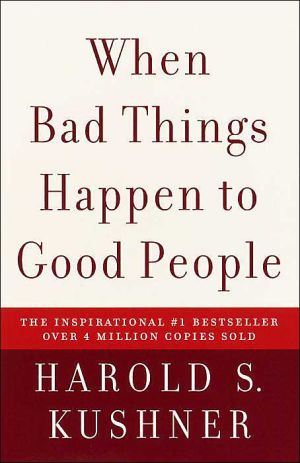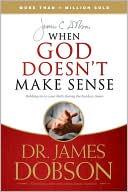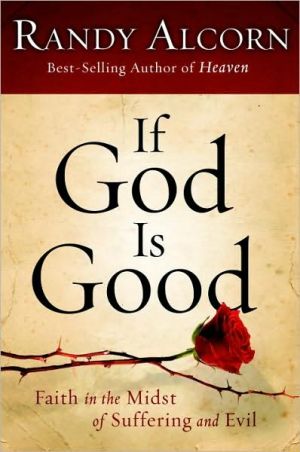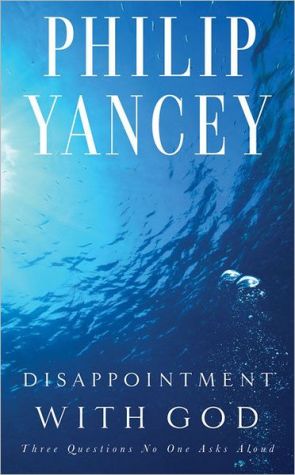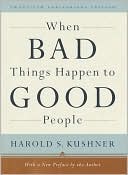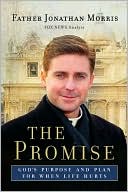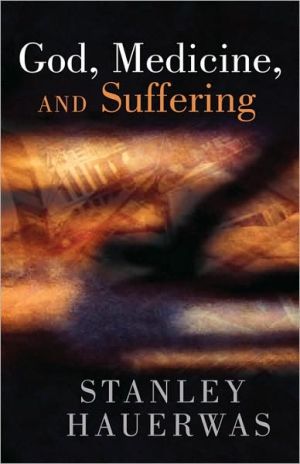Where Was God?: Answers to Tough Questions about God and Natural Disasters
When natural disaster strikes, survivors and onlookers alike face questions about whether God is in control or how he could allow such tragedy to occur. Respected Bible teacher Erwin Lutzer offers answers about God's purposes, his goodness, and his ultimate plan. Without pretending to know the mind of God, Lutzer's answers assure the reader that God is still sovereign, and his plan is still best. Tyndale House Publishers
Search in google:
When natural disaster strikes, survivors and onlookers alike face questions about whether God is in control or how he could allow such tragedy to occur. Respected Bible teacher Erwin Lutzer offers answers about God's purposes, his goodness, and his ultimate plan. Without pretending to know the mind of God, Lutzer's answers assure the reader that God is still sovereign, and his plan is still best.
WHERE WAS GOD?\ ANSWERS TO TOUGH QUESTIONS ABOUT GOD AND NATURAL DISASTERS \ \ By ERWIN W. LUTZER \ Tyndale House Publishers, Inc.\ Copyright © 2006 Erwin W. Lutzer\ All right reserved.\ ISBN: 1-4143-1144-3 \ \ \ \ Chapter One\ DARE WE SEARCH FOR ANSWERS? \ God's silence in the presence of human anguish is one of the greatest mysteries of our existence. When faced with gratuitous human suffering, we are forced to rethink our faith, cope with our doubts, and debate whether God can be trusted. When Hurricane Katrina hit the Gulf Coast in August 2005, even those who usually exclude God from their thinking were asking hard questions about human existence as they wrestled with the Divine's apparent indifference to human need.\ Just as earthquakes create aftershocks, natural disasters create religious aftershocks that challenge the faith of those who believe in God and simultaneously confirm the cynicism of skeptics. Either way, disasters force us to ask ultimate questions.\ The Earthquake That Shook Europe\ We begin our discussion, not with contemporary disasters but rather one that dates back to November 1, 1755. The Lisbon earthquake was probably the most far-reaching and well-known natural disaster in modern history, until the tsunami which occurred late in 2004. Other disasters might have been worse, but none wasso widely discussed or had such profound ramifications as this one in Portugal.\ That morning the sky was bright, calm, and beautiful, but in a moment everything was transformed into frightening chaos. Ironically, the earthquake hit on All Saints' Day, when churches were crowded with worshippers. One would think that the people who sought shelter in the house of God might be spared. Indeed, some people even ran into the churches, seeking shelter by joining the priests who were conducting mass at 9:30 in the morning. Eyewitnesses say that the crowds had the terror of death on their faces, and when the second great shock came, priests and parishioners alike began to shriek, calling out to God for mercy. But heaven was silent to their pleas. Almost all of the churches in Lisbon were reduced to rubble, and the people in them were killed.\ After the initial quake, which lasted from six to ten seconds, further aftershocks continued to destroy buildings and homes. Fire immediately broke out across the city, making rescue efforts nearly impossible. This havoc was then followed by a tsunami; its high waves pounded the seaport, tearing ships from their anchors and drowning hundreds of people who sought shelter along the coast. The bright morning sky was darkened with soot and dust. With earth, fire, and water all combining to increase the destruction, even coolheaded observers suspected a design.\ The earthquake claimed somewhere between thirty and sixty thousand lives, and reduced three-quarters of the city to rubble. Those who remained were forced to rethink many of the important issues of human existence. All throughout Europe there seemed to be a whole new willingness to reopen questions about life beyond the grave, and many people began to talk about building a civilization based on Christianity with its dogged insistence that hope in this life must be rooted in the next. People were faced with the choice of turning against God or believing that He had the power and intention to redeem the evils of this world.\ As might be expected, many people clung to their faith, and others sought out faith in Christ for the first time, having been frightfully reminded that their lives were in constant jeopardy. Some historians even say that the age of revolution in France and the age of the Wesleyan revivals in England may have gained impetus from this catastrophe in Portugal. But opinions were by no means unanimous as to how the event should be interpreted. This highlights the difficulty of reading the Divine Mind.\ An Interpretation, Please!\ The people of Lisbon searched for meaning amid the rubble of destroyed homes and cartloads of dead bodies. Not surprisingly, many believed the earthquake was an act of divine judgment against a sinful seaport city. A famous Jesuit spoke for many when he said, "Learn, O Lisbon, that the destroyers of our houses, palaces, churches and convents, the cause of death of so many people and of the flames that devoured such vast treasures are your abominable sins." After all, the quake came on All Saints' Day, so many assumed God was saying the sins of the saints were so grievous that they merited immediate judgment. What puzzled some, however, was that a street of brothels was left largely intact.\ Predictably, Protestants were inclined to say that the earthquake was a judgment against the Jesuits who founded the city. After all, the Inquisition was in full force and tens of thousands of so-called heretics were being brutally murdered. The Jesuits responded by saying that the quake revealed the anger of God because the Inquisition had become too lax.\ A Franciscan priest gave his interpretation a twist, arguing that the earthquake was a form of divine mercy. After all, he reasoned, Lisbon deserved much worse: God had every right to destroy the whole city because of its wickedness. Thus he marveled at the restraint of God in allowing some people to live. God graciously did just enough to send a warning and chose to spare some in the city as an act of undeserved mercy so that they could repent.\ The parishioners held to the general consensus that this tragedy had to be interpreted in light of a transcendent world. They felt that God was somehow trying to communicate that there is a world beyond this one, a world that can give meaning to the unpredictable and haphazard existence of today. Sermons on the earthquake were preached for years to come.\ Whenever tragedy strikes we have a tendency to interpret it in light of what we believe God is trying to say. Back in 2004, some Muslims believed that Allah struck Southeast Asia with a tsunami at Christmastime because the season is so filled with immorality, abomination, alcohol, and the like. And following Katrina, some Muslims opined that Allah was heaping vengeance on the United States for the war in Iraq.\ On the other hand, a Christian reporter in Israel said that he saw a parallel between the Jewish settlers being forced out of the Gaza Strip and the people being forced out of New Orleans. His implication was that Katrina was a judgment from God for America's support of Israel's decision to vacate parts of the land in favor of the Palestinians. In a further display of supposed divine insight, Pat Robertson suggested that the stroke that ended Ariel Sharon's rule in Israel was God's judgment for having divided "God's land."\ There can be little doubt that controversy surrounds the interpretation of natural disasters. This was brought home to me when I was reading the story of John Wycliffe, the great Protestant Bible translator who taught his Oxford University students how to die for the faith. (More than three hundred of his disciples were mercilessly killed for translating and preaching God's Word.)\ In 1378, Wycliffe retired from public life to continue his studies and writing at Oxford. In 1381, a peasants' revolt occurred, and one of the leaders of the uprising was John Ball, who had reportedly been a disciple of Wycliffe. Wycliffe disowned the revolt, but the damage was done and he was accused of being an accomplice. Furthermore, the rebels had killed the archbishop of Canterbury, replacing him with William Courtenay, an enemy of Wycliffe.\ The following year, the hostile archbishop called a counsel to condemn Wycliffe's statements. When an earthquake came during the proceedings, Wycliffe interpreted it as a sign of divine displeasure, a judgment against those who sought his ousting. Courtenay, however, claimed that the land was breaking wind to expel Wycliffe's foul heresies!\ Clearly, people see in natural disasters exactly what they want to see. I'm reminded of the remark, "We know that we have created God in our own image when we are convinced that He hates all the same people we do." Disasters often become a mirror in which our own convictions and wishes are reflected.\ All of this is a warning that we must be careful about what we say about such tragedies. If we say too much, we may err, thinking we can read the fine print of God's purposes. But if we say nothing, we give the impression that there is no message we can learn from calamities. As we'll see later, I believe that God does speak through these events, but we must be cautious about thinking we know the details of His agenda.\ Is This the Best of All Possible Worlds?\ Voltaire was living during the Lisbon quake and it affected him deeply. In order to understand his reaction, we have to first be introduced to the philosopher Gottfried von Liebniz, who lived a few decades before the Lisbon quake (1646-1716). He was the first philosopher I know of to write a theodicy, a defense of God and His ways in the world.\ Think through this bit of philosophical reasoning: Liebniz taught that God had before Him an infinite number of possible worlds, but because God is good, He chose this world, which is "the best of all possible worlds," and furthermore, God ordered nature to serve the best of all possible ends. After all, a good God who was sovereign would, of course, do only what was both best and right. Leibniz did not condone evil, but said it must first be a part of a grand scheme, intended for ultimate good. Given the ends He wished to accomplish, this was the best God could do.\ Needless to say, after the Lisbon earthquake, people had to ask whether this was indeed "the best of all possible worlds," and if the laws of nature were ordained for the best possible ends. If God was faced with an infinite number of worlds and chose this one, then we rightfully have to ask what the worst of all possible worlds would have looked like!\ Voltaire was convinced that the Lisbon earthquake put an end to the optimism of those who thought God always acted for the best. Voltaire set out to ridicule the convictions of Christians who believed that there could be some ultimate hidden meaning in the suffering of the world. For him, nothing good could come out of the tragedy at Lisbon, either in this world or the next. He even wrote a poem about the earthquake:\ "This misery," ye say, "Is others' good." Yes; from my mouldering body should be born A thousand worms, when death has closed my pain. Fine consolation this in my distress! ... But how conceive a God supremely good, Who heaps his favours on the sons he loves Yet scatters evil with as large a hand? ... Tormented atoms in a bed of mud, Devoured by death, a mockery of fate.\ In a letter to a friend he opined,\ We shall find it difficult to discover how the laws of movement operate in such fearful disasters in the best of all possible worlds-where a hundred thousand ants, our neighbors, are crushed in a second on our ant-heaps, half dying undoubtedly in inexpressible agonies, beneath debris from which it was impossible to extricate them, families all over Europe reduced to beggary, and the fortunes of a hundred merchants ... swallowed up in the ruins of Lisbon.\ He went on to say that he hoped that the Catholic Inquisitors were crushed like all the others in the quake! He railed against clerics who thought this was a divine judgment on the city. And Voltaire wasn't finished. He went on to write Candide, the story of a boy expelled from Paradise who nonetheless believed the world into which he was thrust was "the best of all worlds." With sarcasm and wit, Voltaire describes one tragedy after another, as the boy continues to affirm that it is all for the best.\ For example, Candide meets his favorite philosopher, Dr. Pangloss (a follower of Liebniz), who believes that all things happen by necessity and are for the best. After seeing the Lisbon quake, Pangloss says, "All this is for the best; for, if there is a volcano at Lisbon, it cannot be anywhere else; for it is impossible that things should not be where they are; for all is well."\ Later in the story, the country's wise men decide that earthquakes can be prevented by burning a few people in a slow fire. So these sages round up a few Jews, along with Candide and his philosopher friend, Dr. Pangloss, and lock them up in prison for a week. They then march through the streets, with miters on their heads bearing strange paintings. Candide is flogged as a hymn is being sung. The Jews are burned and Pangloss is hanged. On the same day, the earth quakes again with a fearful crash.\ Candide, terrified, dumbfounded, bewildered, bleeding, and quivering says to himself, "If this is the best of all possible worlds, what are the others? [I could] let it pass that I was flogged ... but O my dear Pangloss! The greatest of philosophers! Must I see you hanged without knowing why!"\ You get the point: As the book progresses, Candide affirms that rape, theft, murder, bankruptcy, and other untold human sufferings must all be optimistically accepted as the best of all possible worlds. With biting sarcasm Voltaire makes a mockery of the notion that God acts for the best, or that He chose the best plan for the world. Voltaire came to the conclusion that evil is unredeemable, that we have no right to discern a higher end to human suffering and tragedy. In this way Voltaire heaped contempt on Christians who believed that surely God had a legitimate purpose in such evils.\ We must pause for a moment and ask, Is this the best of all possible worlds? If we say yes, the answer seems obviously wrong. Paradise would be the best of all possible worlds, not our world with its suffering, corruption, and endless tragedy.\ Looking through our lens, no one could reasonably say this is the best of all possible worlds. If it were, then theoretically, we couldn't improve it. Yet the book of Hebrews uses the word better thirteen times, and says that the biblical heroes longed for a "better country-a heavenly one" (Hebrews 11:16), and that God has planned something better for us (see v. 40). Thus we work hard to make things better because we know this is not the best the world can be.\ Yet it's difficult to be completely satisfied with such an answer. There is more to this matter than we might initially realize. The Bible does teach that God created all things for His own pleasure and for His own glory. And we read, "In him we were also chosen, having been predestined according to the plan of him who works out everything in conformity with the purpose of his will" (Ephesians 1:11). If all things work to the glory of God, if indeed the details of history-along with human and natural evil-all contribute to His eternal purpose, wouldn't it be accurate to say that this plan is the best, if only we could see it from God's point of view? Does He see our tragedies through a different lens? Might there be a good and wise reason for the madness?\ Voltaire was right in saying that from our point of view this is not the best of all possible worlds, but he was wrong in assuming that there could be no hidden purposes in an earthquake. As Christians we believe that God is able to use tragedies for the best of all possible purposes and goals. God has not allowed His creation to spin out of control; He must have amorally sufficient reason that justifies our pain and suffering. So, although we have to look at these disasters through our eyes, we must also view them through the eyes of God as revealed in the Bible. We see events unfold in time, but God sees them from the standpoint of eternity.\ Obviously, this a topic to which we will have to return in a future chapter.\ The Christian Hope\ According to Voltaire, we are insects living for a few seconds on atoms of mud, and cannot understand the designs of an infinite Creator. And he is quite right-if we reject the Bible, as he did. But in doing so, we are left without promises and without hope. If we have no Word from the Creator, the world of nature is a brute fact, revealing no hidden messages. Left to ourselves, we could never figure out the meaning of our existence, much less the purpose of pain. William James put it honestly when he said that we are like dogs in a library, seeing the print but unable to read the words.\ (Continues...)\ \ \ \ \ Excerpted from WHERE WAS GOD? by ERWIN W. LUTZER Copyright © 2006 by Erwin W. Lutzer. Excerpted by permission.\ All rights reserved. No part of this excerpt may be reproduced or reprinted without permission in writing from the publisher.\ Excerpts are provided by Dial-A-Book Inc. solely for the personal use of visitors to this web site. \ \

